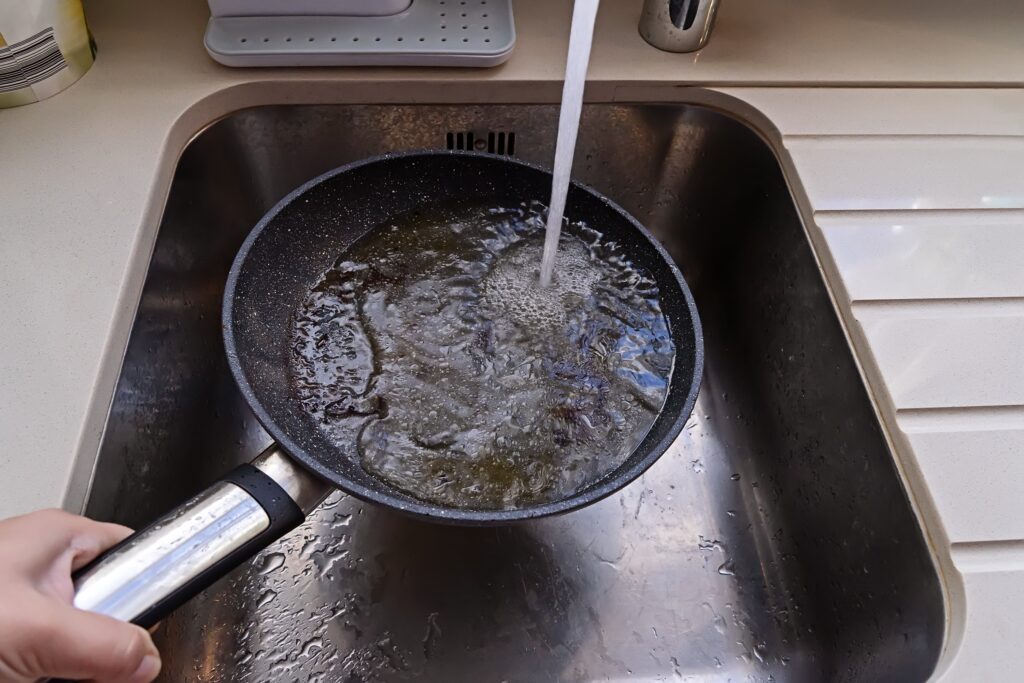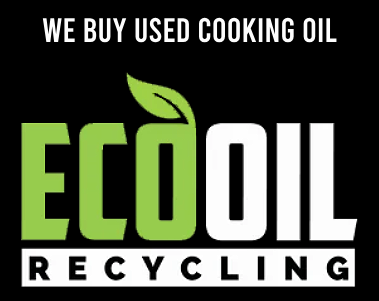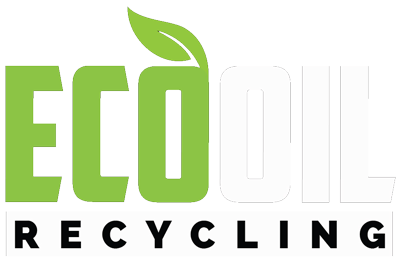For restaurants and food service businesses, managing used cooking oil is more than just another maintenance task—it’s a responsibility with environmental, financial, and operational implications. Improper disposal of used cooking oil can have far-reaching consequences that affect not only your business but also your local community and the environment.

The Hidden Hazards of Pouring Oil Down the Drain
When cooking oil is poured down the drain, it might seem like a quick and harmless solution. However, cooking oil doesn’t dissolve in water. Instead, it solidifies, clogs plumbing, and contributes to costly sewer blockages. These obstructions strain municipal wastewater systems and can lead to sewage overflows, property damage, and steep repair bills. For restaurants relying on clean, functional kitchens, the consequences of a single disposal mistake can be significant.
Improper disposal also poses a serious threat to local ecosystems. Waste fryer oil that ends up in storm drains can pollute rivers, lakes, and soil, harming wildlife and aquatic life. A single gallon of improperly disposed oil can contaminate up to one million gallons of water. Considering the volume of oil produced by commercial kitchens, especially those requiring used cooking oil collection, the environmental impact of poor disposal habits can be staggering.
Health, Safety, and Legal Risks
Used cooking oil also isn’t just messy—it’s a safety hazard. Grease buildup around dumpsters or drains increases the risk of slips, pest infestations, and foul odors. Improper storage and disposal can violate local health codes, leading to inspections, fines, and potential shutdowns.
Environmental regulations in New Hampshire and Massachusetts mandate proper used cooking oil collection and disposal. Businesses that ignore these rules may be subject to legal action, especially if the waste contaminates local waterways or storm systems.
A Safe and Sustainable Alternative: Cooking Oil Collection Services
Fortunately, there are safe and sustainable alternatives. Regular used cooking oil disposal services like EcoOil Recycling ensure your waste oil is handled responsibly and efficiently.
Used cooking oil collection services offer secure containers for on-site storage and schedule pickups based on your kitchen’s volume. This ensures the oil is kept out of drains, out of landfills, and ready for repurposing. Collected oil is often refined into biodiesel or industrial lubricants—turning a liability into a renewable resource.
Environmental and Operational Benefits
Partnering with a reliable collection provider offers long-term benefits for your business and the planet. Recycling used cooking oil not only diverts waste from landfills but also reduces your carbon footprint by contributing to the production of cleaner fuels.
On a practical level, consistent commercial cooking oil pickup services reduce downtime, help prevent clogged lines and equipment failures, and support a healthier kitchen environment.
Why Businesses Trust EcoOil Recycling
EcoOil Recycling specializes in helping commercial kitchens navigate the challenges of cooking oil disposal. From waste fryer oil collection to large-scale commercial cooking oil recycling, our tailored services are designed to meet the unique needs of restaurants, cafeterias, food trucks, and institutional kitchens across New England.
Whether you need regular pickups or a one-time bulk removal, EcoOil Recycling offers flexible solutions for all types of food service operations. Our experienced team understands regional regulations and provides environmentally responsible options for both small businesses and large chains.
Take the Clean, Green Route
Choosing proper disposal isn’t just a legal or operational necessity—it’s a way for your business to demonstrate leadership in sustainability and community care. Contact EcoOil Recycling today to learn more about how we help businesses manage used cooking oil collection safely and efficiently, while contributing to a circular economy.

